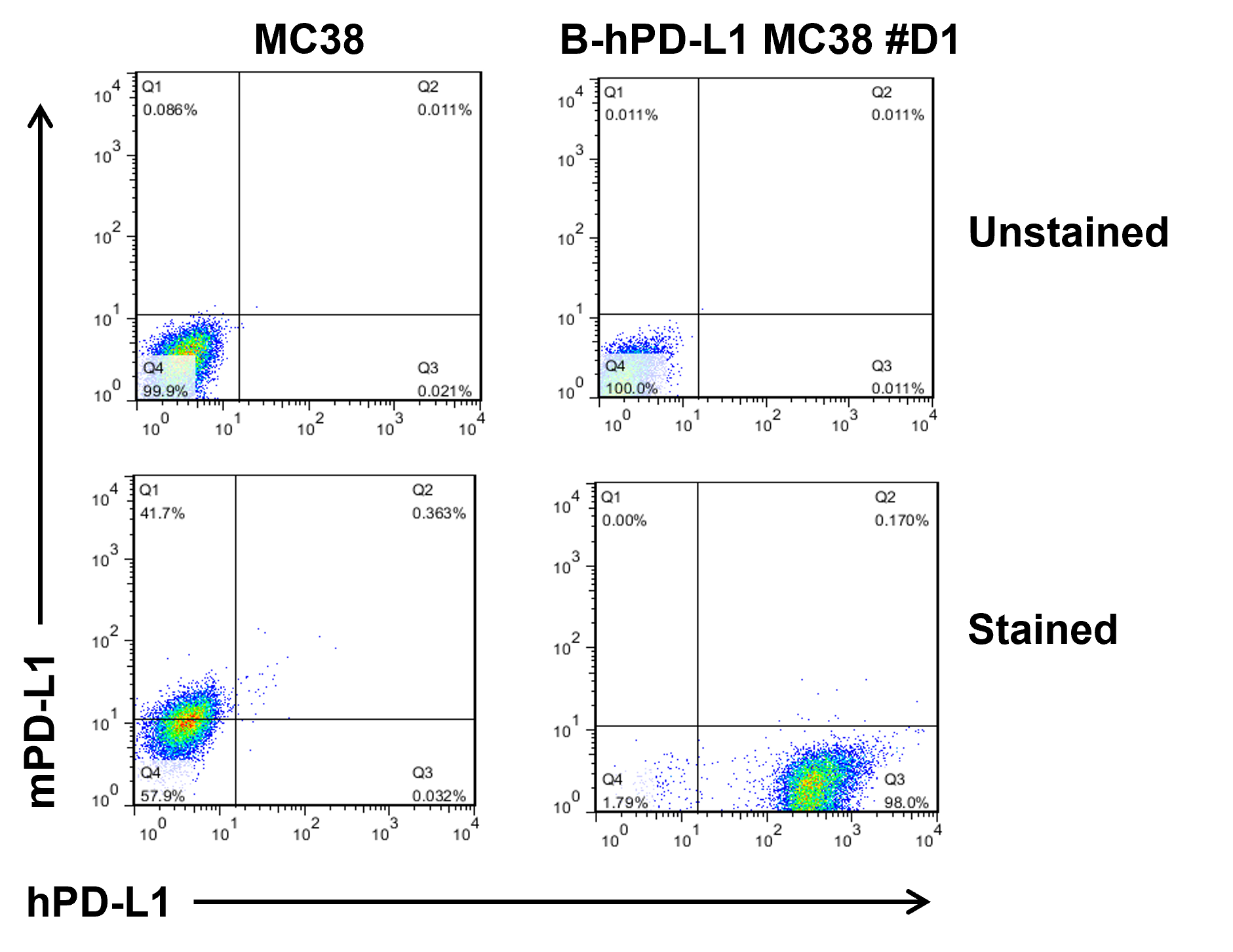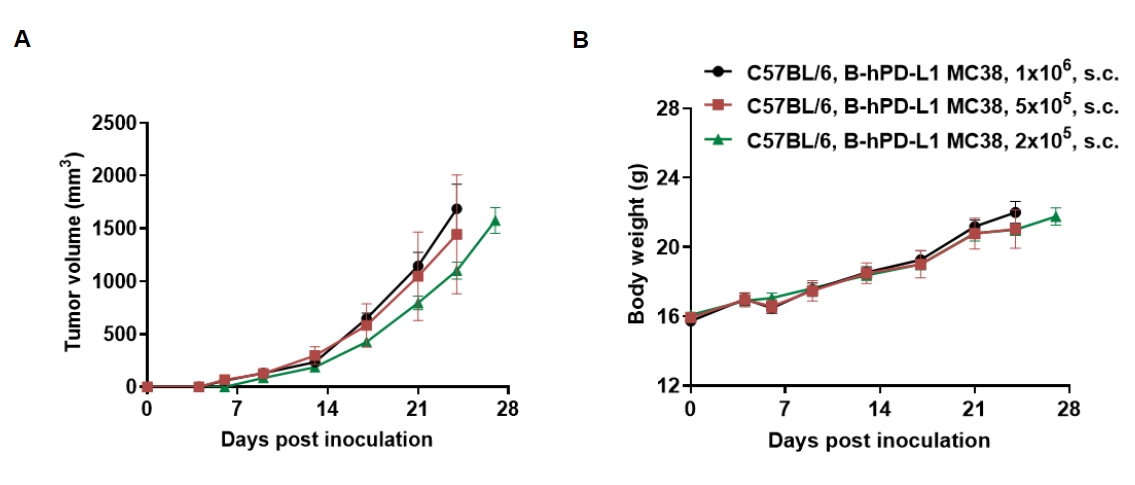Basic Information
Description
The mouse Pdl1 gene was replaced by human PD-L1 coding sequence in B-hPD-L1 MC38 cells. Human PD-L1 is highly expressed on the surface of B-hPD-L1 MC38 cells.
-
Gene Targeting Strategy

-
The exogenous promoter and coding sequence of human PD-L1 was inserted to replace part of murine exon 3. The insertion disrupts the endogenous murine Pdl1 gene, resulting in a non-functional transcript.
-
Protein Expression Analysis

-
 PD-L1 expression analysis in humanized B-hPD-L1 MC38 cells. Single cell suspensions from wild-type MC38 and B-hPD-L1 MC38 cultures were stained with species-specific anti-PD-L1 antibodies and analyzed by flow cytometry. Human PD-L1 protein was exclusively detected on the surface of B-hPD-L1 MC38 cells compared to wild-type MC38 cells. The D1 clone of B-hPD-L1 MC38 cells was used for in vivo experiments.
PD-L1 expression analysis in humanized B-hPD-L1 MC38 cells. Single cell suspensions from wild-type MC38 and B-hPD-L1 MC38 cultures were stained with species-specific anti-PD-L1 antibodies and analyzed by flow cytometry. Human PD-L1 protein was exclusively detected on the surface of B-hPD-L1 MC38 cells compared to wild-type MC38 cells. The D1 clone of B-hPD-L1 MC38 cells was used for in vivo experiments. -
Tumor growth curve & Body weight changes

-

Subcutaneous homograft tumor growth of B-hPD-L1 MC38 cells. B-hPD-L1 MC38 cells (1×106, 5×105 and 2×105) were subcutaneously implanted into C57BL/6 mice (female, 6-week-old, n=5). Tumor volume and body weight were measured twice a week. (A) Average tumor volume ± SEM. (B) Body weight (Mean± SEM). Volume was expressed in mm3 using the formula: V=0.5 X long diameter X short diameter2. As shown in panel A, B-hPD-L1 MC38 cells were able to establish tumors in vivo and can be used for efficacy studies.


